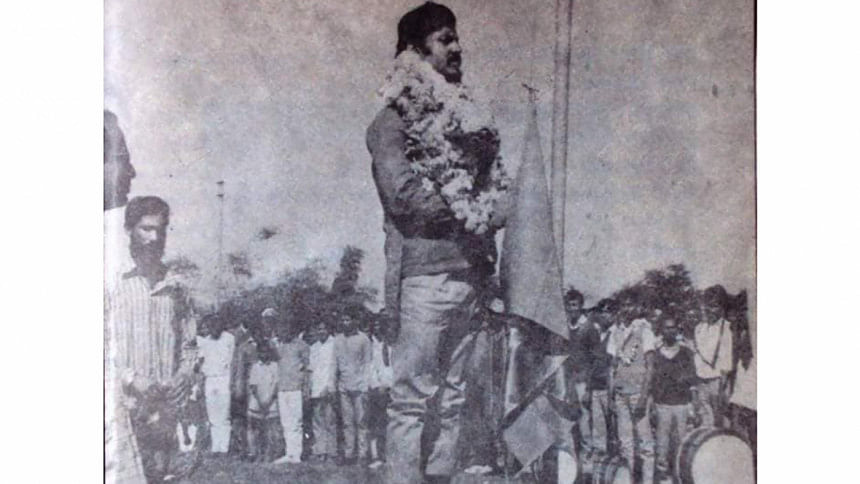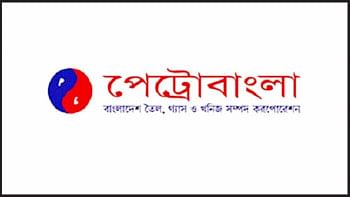The day Rajshahi was freed

Rajshahi was freed on this day, two days after the country's victory in its Liberation War.
Geias Uddin Ahmed Chowdhury Bir Bikrom, then army captain and commander of sub-sector-4 under sector-7, declared Rajshahi's freedom from the Pakistani occupation forces, hoisting the flag of independent Bangladesh at Madrassa Maidan in the afternoon of December 18, 1971, said wartime journalist Ahmed Shafi Uddin in Rajshahi.
Ahmed Shafi Uddin was the Chief Reporter of Weekly Sonar Desh at that time. Pakistani army issued 'red warrants' against all journalists of Sonar Desh forcing them to take shelter at rural hideouts. He returned to his town hideout weeks before the Victory.
"I wrote notes of the days in a diary at that time," he said.
"Rajshahi was a dead town with eerie silence prevailing after the atrocities committed by Pakistani forces during the nine-month-long bloody war. People were still fleeing homes to avoid possible attacks by the Pakistanis," he said.
"Some freedom fighters entered the town on the evening of December 17, 1971 and others at 8pm. At 12am, Major Geias reached the town. When the freedom fighters were arriving, the Pakistani forces began falling back to Natore for their surrender," he said, quoting the notes.
On December 18 morning, Indian army, who were assisting the freedom fighters, reached the town and set up tents in Rajshahi College field, he said, reading from the diary.
"I can remember the freedom fighters were tired, unfed. I saw some of them standing on rickshaws and shouting for food. The town's people responded to them and provided them food. Our family provided them bread and chicken curry, others offered puffed rice, thrashed rice and sweets," recalled Ahmed Shafi.
"The town's people had an outburst of emotions and celebrated that morning (December 18). The women in our house sewed the national flag cutting their wears and reshaping those like the new born country's map. People took to the streets chanting Joy Bangla," he said.
In the afternoon, a public meeting was held at Madrassa Maidan.
Politicians Ataur Rahman of Rajshahi, Mesbahul Haque Bachchu of Chapainawabganj, Shankar Govinda Chowdhury of Natore, Mainuddin Mandal of Naogaon, Azharul Islam and Roisuddin spoke among others in the meeting.
In the meeting, Major Geias hoisted the national flag and announced that Rajshahi was free.
On December 19, Rajshahi College was opened for the public and people gathered there for exchanging greetings with the freedom fighters and Indian Army.
Ahmed Shafi Uddin said, he himself then collected autographs from Indian army commanders.
Freedom fighters corroborated Shafi's version of the events. Shafiqur Rahman Raja, who led guerrilla warfare in Rajshahi Sadar Mohakuma, said that the freedom fighters took two days to enter into Rajshahi as the Pakistani forces set up booby traps around the town and damaged bridges on the ways into the town.
"Freedom fighters, assisted by locals, repaired the roads and advanced forward. So their entry was delayed," he said.
On December 20, the Pakistani army surrendered to the joint forces in Uttara Gono Bhaban in Natore.

 For all latest news, follow The Daily Star's Google News channel.
For all latest news, follow The Daily Star's Google News channel. 



Comments